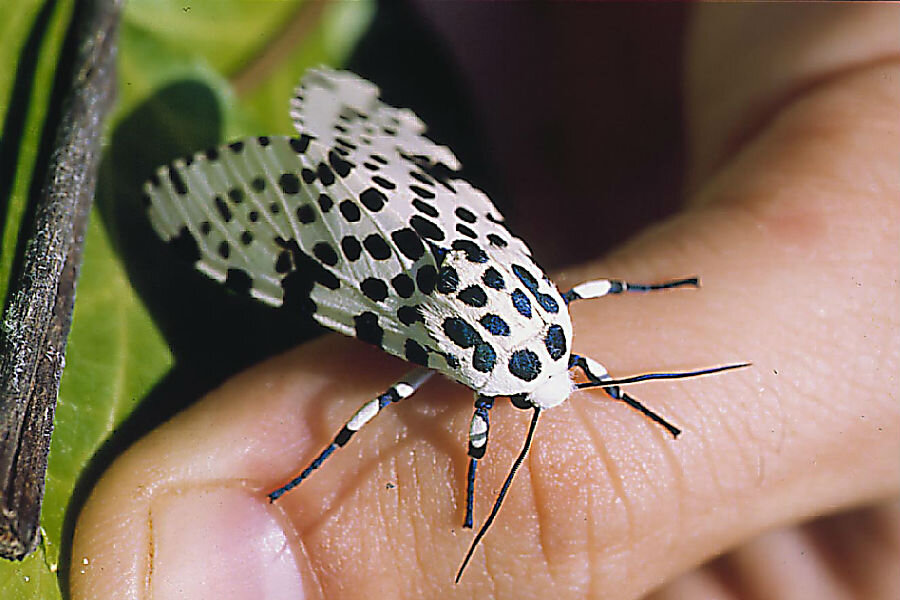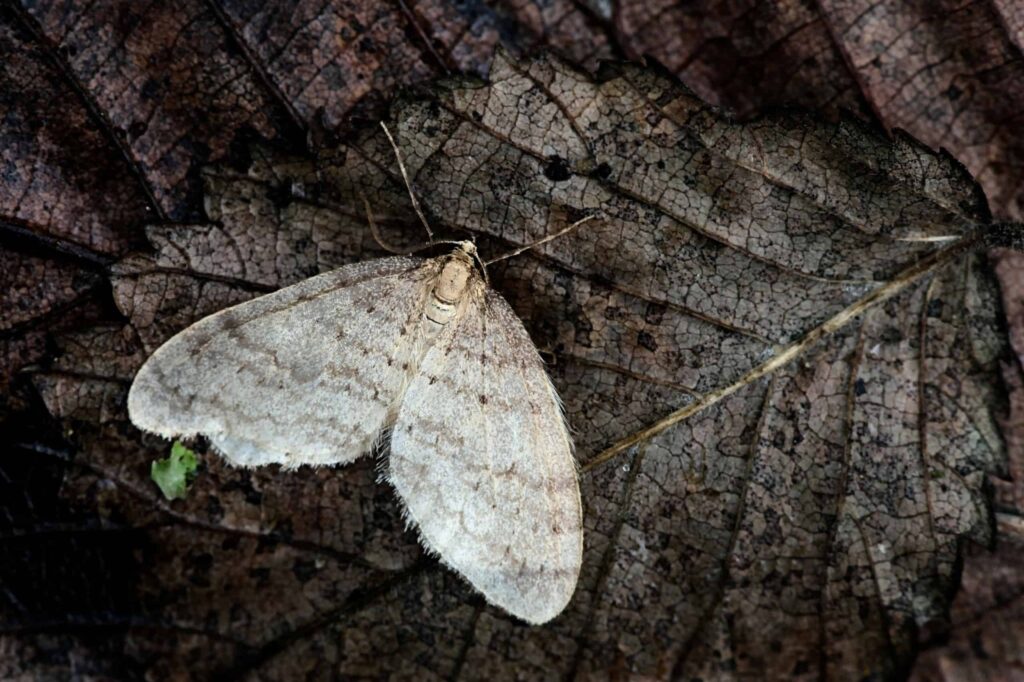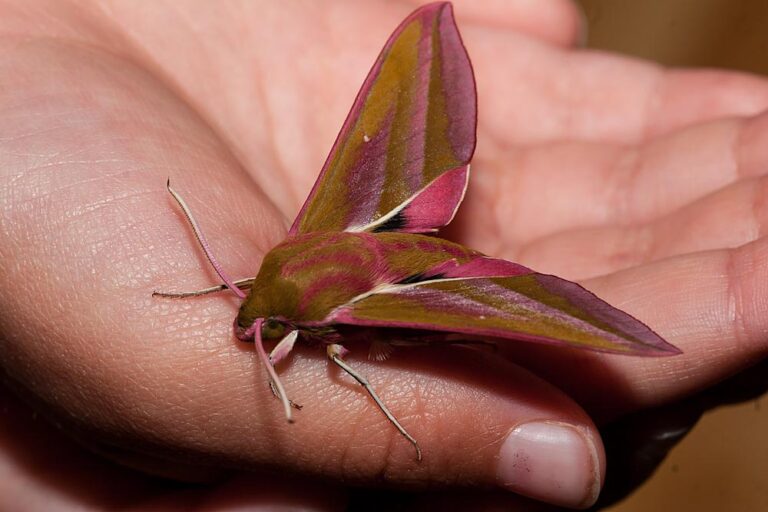Dogs can eat moths, but it’s not recommended. While moths are not typically toxic to dogs, there are potential risks, including the transmission of parasites or diseases, choking hazards, and the development of undesirable habits. It’s best to discourage your dog from eating moths and consult a vet if you suspect any issues.
How do dogs typically react to moths?
Dogs may occasionally consume moths for several reasons:
Dogs are natural hunters, and they often exhibit curiosity and an instinct to chase moving objects. Moths, with their fluttering flight patterns, can trigger a dog’s predatory instincts, leading them to attempt to catch and eat the moths.
Moreover, dogs are curious creatures, and when they see moths fluttering around lights or other sources, they may be inclined to investigate and potentially consume them out of curiosity.
In some cases, dogs may inadvertently ingest moths while attempting to catch them. This can happen quickly, especially if the moth flies near the dog’s mouth.
Potential risks and concerns
While occasional consumption of moths may not necessarily harm dogs, it’s important to be aware of potential risks and concerns:
Moths can carry parasites or diseases, such as tapeworms, that may be harmful to dogs if ingested. This poses a potential health risk, although the likelihood of transmission is relatively low.
Moths have delicate wings and legs that dogs may not fully chew before swallowing. This can result in choking hazards, especially for smaller breeds. Choking incidents can be life-threatening and require immediate intervention.
Allowing dogs to chase and eat moths can reinforce their predatory behavior. This may extend to other insects, some of which could be dangerous or venomous. It’s essential to prevent the development of such undesirable habits.
Furthermore, some dogs may have allergies or sensitivities to insects, including moths. Ingesting a moth could trigger allergic reactions in these sensitive dogs, leading to symptoms such as itching, swelling, or digestive issues.
What are the risks of dogs ingesting moths?

Dogs ingesting moths can pose several risks to their health, depending on various factors, including the size of the dog, the type of moths, and the quantity consumed.
Transmission of parasites or diseases
Types of parasites and diseases: Moths can sometimes carry parasites or diseases that pose a risk to dogs. Parasites like tapeworms may be present in moths, and if ingested, they can lead to intestinal infections in dogs.
Diseases such as leishmaniasis, which can be transmitted by sand flies, can be indirectly linked to moth ingestion if the moth served as a vector for the disease.
Mode of transmission: Dogs may become infected if they consume moths containing infectious parasites or diseases. In addition, moths may carry these pathogens on their bodies or in their digestive systems, which can then be transferred to the dog’s gastrointestinal tract upon ingestion.
Choking hazards
Moth anatomy: Moths have fragile bodies with wings and legs that are not easily digestible.
Dogs, especially those with a habit of gulping food or objects, may swallow moths whole or in large pieces.
Risk to smaller dogs: Smaller dog breeds are at a higher risk of choking on moth parts due to their smaller airways and digestive tracts. Furthermore, choking incidents can lead to emergency situations, requiring immediate intervention to clear the airway.
Development of undesirable habits
Encouraging predatory behavior: Allowing dogs to chase and eat moths can reinforce their predatory instincts.
Furthermore, this behavior may generalize to other insects or animals, potentially leading to problematic encounters with creatures that are harmful, venomous, or unsuitable as prey.
Reinforcement through reward:
Catching and eating moths can be perceived as rewarding for dogs, making them more likely to continue the behavior. Moreover, consistent reinforcement can make it challenging to redirect their attention away from chasing or consuming insects.
Allergic reactions
Canine sensitivities: Some dogs may have allergies or sensitivities to insects, including moths. Ingesting a moth, even if not inherently toxic, could trigger allergic reactions in sensitive dogs.
Allergic reaction symptoms: Allergic reactions in dogs can manifest as itching, swelling, hives, gastrointestinal upset, or even more severe symptoms such as difficulty breathing.
Identifying and managing these reactions promptly is essential to the dog’s well-being.
How can dog owners discourage moth consumption?
Protecting your beloved canine companion from moth consumption requires a combination of awareness and strategic prevention measures.
Discouraging dogs from eating moths
Supervision and training: It’s essential to supervise your dog when they are outdoors or in areas where moths are present. Use positive reinforcement training to discourage the behavior of chasing and eating moths. Reward them when they listen to your commands, such as “leave it” or “drop it.”
Indoor lighting: Minimize moth attraction indoors by using light fixtures with screens or selecting bulbs that are less likely to attract insects. Close doors and windows to prevent moths from entering your home, reducing the opportunities for your dog to encounter them.
Leash walks: While walking your dog, keep them on a leash, especially in areas with a high prevalence of moths. This allows you to have better control over your dog’s actions and prevents them from darting after moths.
Distracting toys and activities: Provide your dog with engaging toys or activities that redirect their attention away from moths. Puzzle toys, fetch, or interactive games can help satisfy their need for mental and physical stimulation.
Seeking veterinary advice if issues arise

Allergic reactions: If you suspect your dog has ingested a moth or had contact with insects and is displaying symptoms of an allergic reaction (e.g., itching, swelling, or difficulty breathing), seek immediate veterinary care.
Allergic reactions can escalate rapidly and require prompt treatment.
Choking incidents: If your dog chokes on a moth or experiences any respiratory distress, attempt to perform the Heimlich maneuver on your dog if you are trained to do so.
Regardless of the outcome, it’s crucial to consult a veterinarian afterward for a thorough evaluation.
Behavioral concerns: If your dog develops a persistent habit of chasing and eating moths or displays any unusual behavior, consult with a professional dog trainer or behaviorist.
Moreover, they can provide guidance on behavior modification techniques to address the issue.
General health concerns: Regular veterinary check-ups are essential for your dog’s overall health. During these visits, you can discuss any concerns related to your dog’s diet, behavior, or exposure to insects like moths.
FAQ’s
Why do dogs like eating moths?
Dogs may be attracted to moths due to their instinctual prey drive and the moths’ fluttering movements, which trigger their hunting instincts.
Can dogs eat moth larvae?
While not toxic, it’s best to discourage dogs from eating moth larvae to avoid potential digestive upset or allergic reactions.
Can dogs eat butterflies?
Butterflies are generally not harmful, but it’s best to discourage dogs from eating them to prevent potential gastrointestinal issues.
Can dogs eat ants?
Most ants are not toxic, but it’s not recommended for dogs to consume them as they can cause digestive discomfort.
Is it bad if a dog eats a fly?
Eating a fly is generally not harmful, but it’s best to discourage this behavior due to potential ingestion of pesticides or contaminants.
Can a dog get sick from eating a bug?
It depends on the bug. While many bugs are not toxic, some can cause digestive upset or allergic reactions. It’s best to discourage bug consumption.
Can dogs eat spiders?
Most spiders are not toxic to dogs, but it’s recommended to prevent spider consumption to avoid potential bites or irritations.
Is it OK for dogs to eat grasshoppers?
Grasshoppers are generally not toxic to dogs, but it’s best to discourage consumption to prevent potential digestive issues.
Final Thought
In conclusion, while dogs may occasionally eat moths out of natural curiosity or predatory instincts, it is advisable to discourage this behavior for several reasons.
Moths can carry parasites or diseases that pose potential health risks to dogs, and their fragile wings and legs can present choking hazards, particularly for smaller breeds.
Allowing dogs to chase and eat moths can also reinforce undesirable predatory habits and, in some cases, trigger allergic reactions in sensitive individuals.
Therefore, responsible pet ownership involves supervising your dog, providing training and distractions, and taking measures to minimize moth presence indoors.
Additionally, seeking veterinary advice is crucial if your dog exhibits any adverse reactions or choking incidents related to moth ingestion.

